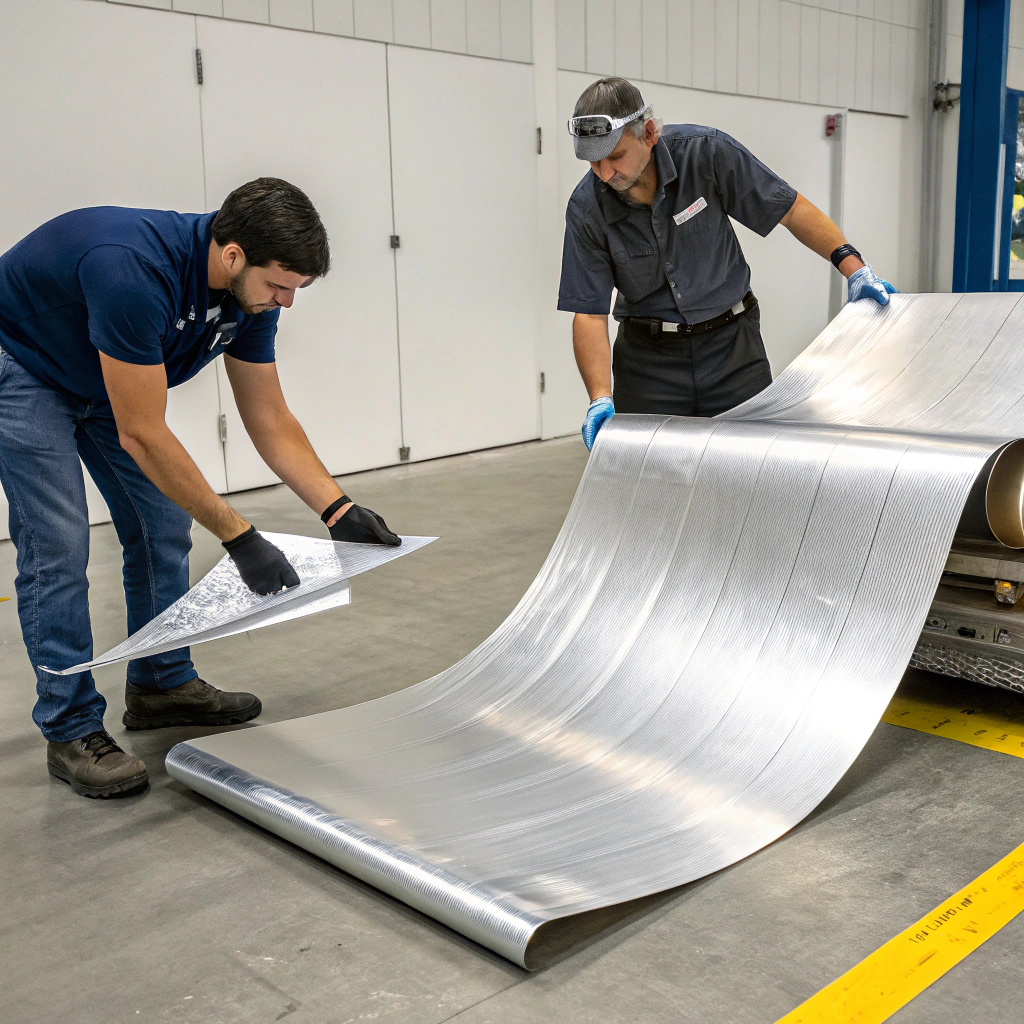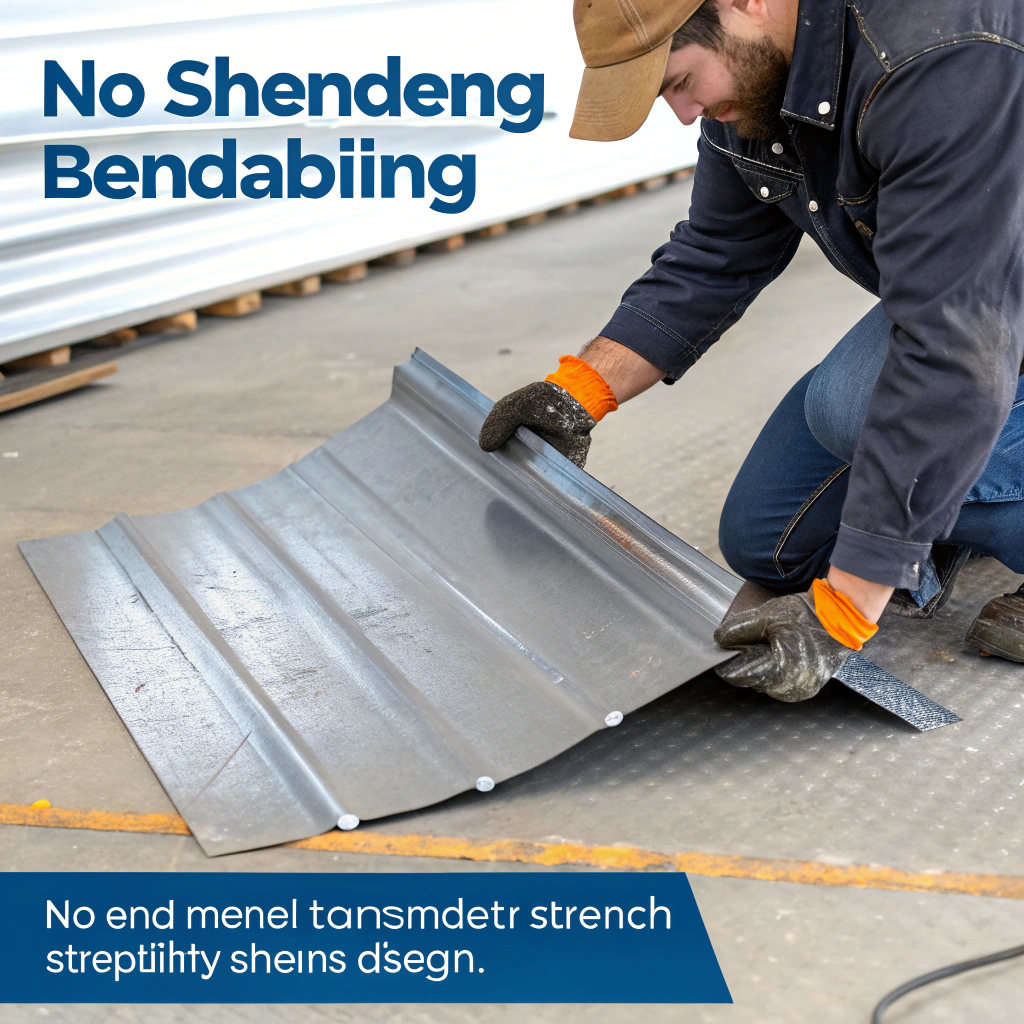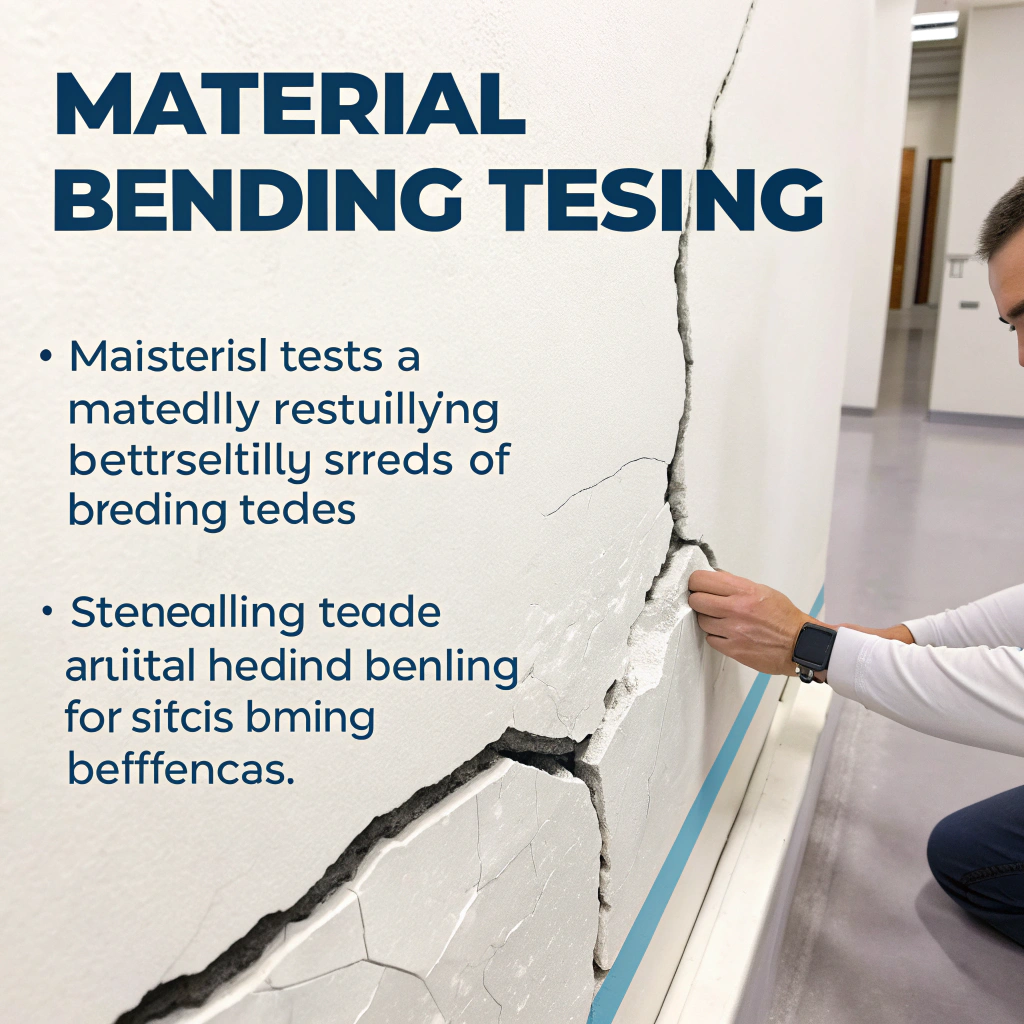Какой алюминиевый сплав лучше всего гнется?

Not all aluminum alloys bend the same. Some snap. Some wrinkle. If you bend the wrong alloy, you waste time and money.
5052 aluminum bends best. It offers a great mix of strength and flexibility, making it ideal for bending applications.
If you’re trying to decide which alloy works best for your project, keep reading. I’ll compare the most common options and help you avoid costly mistakes.
What type of aluminum is best for bending?
You can’t bend every aluminum alloy the same way. Some crack under pressure, others fold like butter.
For general bending, 5052-H32 aluminum is the most recommended alloy. It’s strong but still flexible, resisting cracks even at tight radii.

This is why 5052 is widely used in automotive parts, marine hardware, and appliance panels. It handles both sharp and gradual bends without breaking.
Aluminum Alloys and Their Bendability
| Сплав | Изгибаемость | Примечания |
|---|---|---|
| 5052-H32 | Превосходно | Best for tight bends and formability |
| 6061-T6 | Poor–Fair | Can crack if not annealed |
| 3003-H14 | Хорошо | Soft, moderate strength, easy to bend |
| 7075-T6 | Very Poor | High strength, but brittle when bent |
5052 also resists corrosion well, especially in salty environments. So if you’re building something for outdoor use, it holds up better than most.
In my shop, I always keep 5052 in stock. I’ve bent thousands of pieces without a single crack. Once, I tried to use 6061 because it was cheaper. Big mistake—it cracked on a simple 90° bend.
5052-H32 is the most suitable aluminum alloy for bending.Правда
This alloy combines flexibility and strength, making it ideal for forming and tight bends.
All aluminum alloys have the same bendability.Ложь
Different alloys have different temper, strength, and flexibility. Not all are suitable for bending.
Is 6061 better than 5052 for bending?
You might think 6061 is better because it’s stronger. But that’s not always a good thing.
No, 5052 is better than 6061 for bending. 6061 is strong but brittle, while 5052 bends without cracking.

6061 is one of the most popular aluminum alloys, especially in structural applications. It’s great for machining, welding, and holding heavy loads. But when you try to bend it—especially in its T6 temper—it often fails.
Why 5052 Beats 6061 for Bending
| Недвижимость | 5052-H32 | 6061-T6 |
|---|---|---|
| Изгибаемость | Превосходно | Бедный |
| Прочность | Средний | Высокий |
| Устойчивость к коррозии | Очень высокий | Умеренный |
| Общее использование | Sheet metal, marine | Frames, tools |
Now, if you really must bend 6061, consider annealing it first. That softens the metal and helps it flex more. But that takes extra time, energy, and sometimes leads to inconsistent results.
I tried bending 6061 without annealing when I was new to the business. That’s how I learned what a cracked sheet sounds like—and why experience matters.
5052 is more bendable than 6061 in most situations.Правда
5052 has better formability and resists cracking during tight bends, unlike 6061.
6061 bends better than 5052 without any preparation.Ложь
6061 is harder and more brittle in T6 form, and it cracks easily unless softened first.
Is 7075 aluminum bendable?
You might love 7075 for its strength. But when it comes to bending, it’s one of the worst choices.
No, 7075 aluminum is not easily bendable. It is very strong but brittle, especially in T6 condition, and will likely crack during bending.

7075 is used in aerospace, military, and structural parts where high strength is more important than flexibility. But when you try to form it, especially at sharp angles, it doesn’t give—it breaks.
7075: Strength Over Flexibility
| Фактор | Рейтинг |
|---|---|
| Изгибаемость | Very Poor |
| Прочность | Очень высокий |
| Устойчивость к коррозии | Умеренный |
| Примеры использования | Aircraft parts, molds, frames |
7075 is so brittle that even slight misalignment during a bend can lead to a complete break. There’s almost no forgiveness. And unlike 5052, you can’t simply anneal it and expect it to bend well.
I’ve never used 7075 for any job that needed bending. It’s just not worth the risk or the waste. One client insisted on using it for a decorative bent edge. We tested it—and it failed three out of three times.
7075 aluminum is hard to bend and often cracks during the process.Правда
It has low ductility and high brittleness, making it unsuitable for forming or sharp bending.
7075 aluminum is highly suitable for complex bending applications.Ложь
Its strength comes at the cost of formability, which makes it prone to cracking when bent.
Is 5052 H32 aluminum bendable?
Let’s get specific: yes, this exact type is one of the best for forming. H32 means it’s been strain-hardened and partially annealed for balance.
Yes, 5052-H32 aluminum is highly bendable. It resists cracking even at tight angles and performs well in forming operations.
What makes it so good? It’s the perfect mix of strength, ductility, and corrosion resistance. That’s why it’s used in everything from fuel tanks to marine panels.
Key Benefits of 5052-H32
- Allows tight-radius bends without pre-treatment
- Doesn’t crack under stress
- Handles marine environments better than most
- Holds paint and finish well
I use 5052-H32 for nearly all my projects that need forming. One of my go-to products is custom bent covers for construction clients. With 5052-H32, I get clean bends, smooth curves, and no failures.
Even after years of experience, it’s still my top pick.
5052-H32 aluminum is known for excellent bendability.Правда
This alloy and temper combination is designed to bend easily without cracking.
5052-H32 cannot be bent without heat treatment.Ложь
It can be bent cold without needing to be annealed. That’s part of why it’s so popular.
Заключение
When choosing aluminum for bending, pick flexibility over brute strength. 5052-H32 gives you the best of both worlds—it’s bendable and durable. Alloys like 6061 and 7075 have their place, but not in the brake press.



